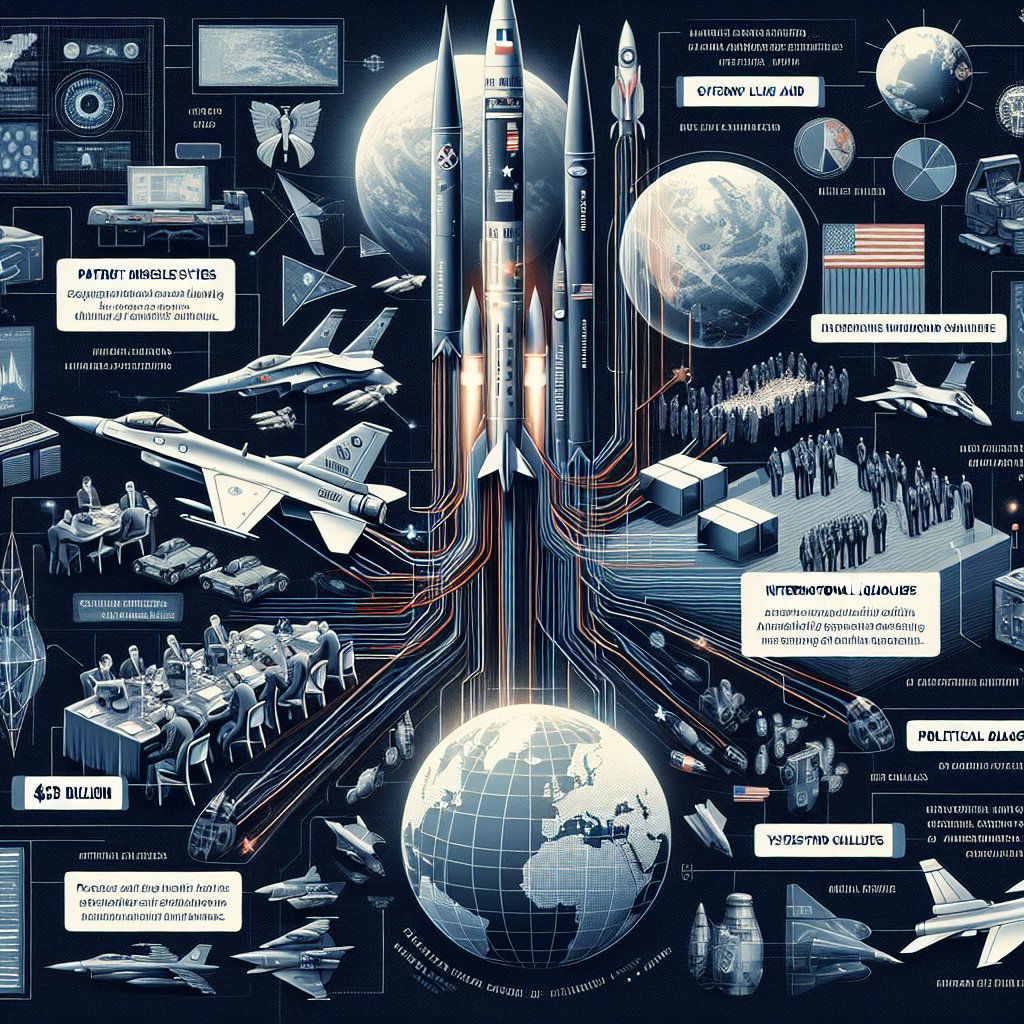Image created by AI
NATO Commits $43 Billion Aid and Path to Membership for Ukraine Amid Heightened European Security Concerns
In a landmark declaration affirming Western support for Ukraine amidst ongoing conflict, NATO leaders have pledged a substantial $43 billion in military aid to the country and have set it on an "irreversible path" to membership in the alliance. This announcement follows a critical summit in Washington, DC, where alliance members also detailed their individual and combined efforts to enhance Europe's defense capabilities against Russian aggression.
This package of aid is a significant response to the urgent requests of Ukrainian President Volodymyr Zelenskyy, who has long advocated for such support. The aid includes four advanced Patriot missile systems from the United States and an array of air defense systems, addressing a key element of Ukraine's defense needs. Furthermore, the U.S., Netherlands, and Denmark are on course to supply Ukrainian pilots with F-16 fighter jets by the summer of 2023—reinforcing Ukraine's aerial capabilities significantly.
However, NATO's communique stipulated certain conditions and consensus among allies before Ukraine's full NATO membership materializes. Still, the declaration positions Ukraine's journey toward integration into the Euro-Atlantic fold as an established direction, aiming to fortify the country against future threats.
Amid this bolstering of Ukraine’s defenses, the United States announced the deployment of longer-range missiles in Germany by 2026, a move reflective of NATO's evolving stance towards Russia. The decision signals a shift from previous limitations set by the now-defunct Intermediate-Range Nuclear Forces Treaty and underscores a proactive posture to deter potential threats.
Beyond the pledges to Ukraine, NATO's messaging at the summit held a wider perspective, notably addressing the role of China in the conflict. The alliance branded China a “decisive enabler” of Russia's actions in Ukraine and called attention to the systemic challenges it presents to Euro-Atlantic security. This marks a significant strategic assessment by NATO, encompassing the complex interplay of global influences in current geopolitical dynamics.
At the same time, the alliance's unity faced scrutiny from questions regarding the stance of potential future U.S. leadership. In the face of inquiries about the steadfastness of American commitment, NATO Secretary-General Jens Stoltenberg refuted skepticism and highlighted the concrete actions and increased investments by allies in the alliance's collective security framework.
Indeed, while defense spending among NATO members has risen substantially, reaching and surpassing agreed-upon guidelines, discussions at the summit also touched on internal political factors, including the durability of U.S. President Joe Biden's leadership and the implications of the forthcoming American election.
Nonetheless, the commitments made at the NATO summit—amounting to one of Biden's potentially last international appearances before the election—stand as crucial support for Ukraine in the immediate term. As the global community observes developments within the U.S. and across the transatlantic landscape, the commitments made at this summit carry significant weight for the policy directions and security outlook of the ensuing months and beyond.










